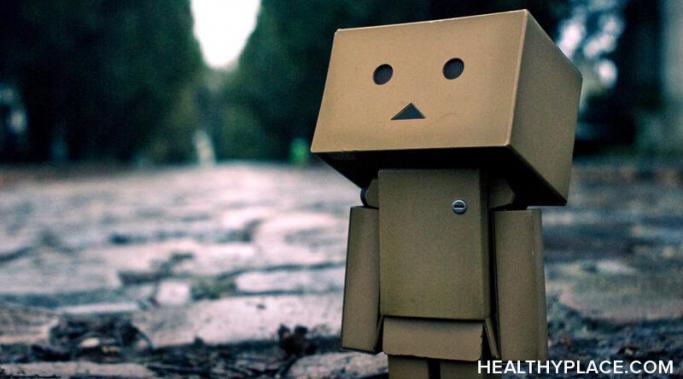Blogs
Many of us face the loss of identity in depression. It feels as if there is a stranger living inside of us. We don't recognize the person we see in the mirror. It's as if depression has stripped us as bare as a tree in the midst of a long, cold winter. It's difficult, but I deal with a loss of identity in depression and so can you.
Building personal boundaries in eating disorder recovery helps to make the healing a priority. But when it comes to eating disorder recovery, how can you maintain effective personal boundaries, and why do those boundaries even matter in the first place? It's important to realize the purpose of having personal boundaries is not to prevent all relationships from nurturing—but to protect the safe relationships from becoming unhealthy. Constructing and asserting personal boundaries will equip you to prioritize eating disorder recovery while teaching the people you care about which behaviors toward you are appropriate and which should be re-evaluated.
One of the things I find most frustrating about living with posttraumatic stress disorder (PTSD) is the impact PTSD has on my sex drive. I am a private person, and sex is a decidedly personal issue for many people, so I've put this topic off many times. However, the problems that PTSD can bring to partners don't go away on their own, so let's explore the potential difficulties that PTSD symptoms can bring to a sexual relationship.
Knowing how to choose a therapist for dissociative identity disorder (DID) is much different from knowing how to choose a car or a box of on-sale cereal. DID treatment can be challenging and there are so many considerations to ponder when choosing a therapy for DID. Do you need a specialist? Do you need a DID therapist? What brand of therapist do you need? What type of treatment does he or she offer?
When it comes to self-care and treating anxiety, we need to know when it’s time to let go and say goodbye to certain obligations. If we don’t learn to let go of some things, we can spread ourselves thin and run ourselves into the ground. While it is bittersweet to announce my departure from HealthyPlace, I know letting go is vital to my mental health in order to prioritize and reduce some of my own anxiety.
Being a people pleaser with social anxiety causes problems for me. Social anxiety can pressure us to make other people happy, rather than ourselves. I have spent my life molding myself into a person that I hope other people will like. I adapt my actions, words, and sometimes even beliefs, to make people feel that I’m agreeing with them.
When you share your mental health story, you create something powerful. My mental illness is fuel for my creative work. It’s something to draw and write about. My mental health story has also given me the chance to help others as a peer supporter and volunteer. As mental health consumers, what we experience is very real and raw. On some level, most people are curious and can empathize, so you can share your mental health story and create something powerful.
I likely don’t need to tell you bipolar depression is hard, and I probably don’t need to tell you concerted effort – trying hard – is difficult, too. But the thing is, bipolar depression management (or bipolar management in general) requires trying hard all the time. The effort of this is not something to be underestimated. This is a tall order. Trying hard with bipolar depression requires such energy and focus it feels impossible to do it all right all the time in spite of the need to do it constantly.
Self-care activities for new job stress will help you ease into a new workplace. Starting anything new can be nerve-racking, jobs are no exception. Even if you have prior experience with the type of work you are doing, you are working in a different atmosphere. You are working with new coworkers and adhering to new policies. It takes time to adjust, and self-care is critical. For techniques about how to practice self-care for job stress, read this article.
Many of us think we know what gaslighting means, but even so, gaslighting is hard to call out in a relationship because it happens so gradually you might not even notice. Don't be fooled by the displays of gaslighting we see in movies and on TV -- a gaslighter won't necessarily leave the oven on to make you think you're crazy. He or she won't always resort to blatant emotional manipulation tactics or call you a liar. Gaslighting can be a lot more pervasive, subtle and destructive than our basic understanding gives it credit for -- and it could be happening to you. Here's an illustration of what gaslighting means, why gaslighting is so hard to call out in a relationship, as well as the gaslighter types and traits to watch out for.










I believe she will only be able to rid herself of her demons, and hopefully her BPD as well, when she's ready to confront the abuse of her father. If she can put the blame where it belongs, she may stop projecting that victim/perpetrator cycle on the present men in her life. These demons are a metaphor for the purgatory she has created for herself. That reality has consequences in the real world, but it need not be real in the tangible sense. Exorcising her demons will require the expenditure of real physical energy and probably the destruction of aspects of her personality. If this ever happens, and it's possible but not probable, then these demons will evaporate. They are only as real as one's personality is real. In short, reality is not the question, it's what you make of the things you feel to be real.